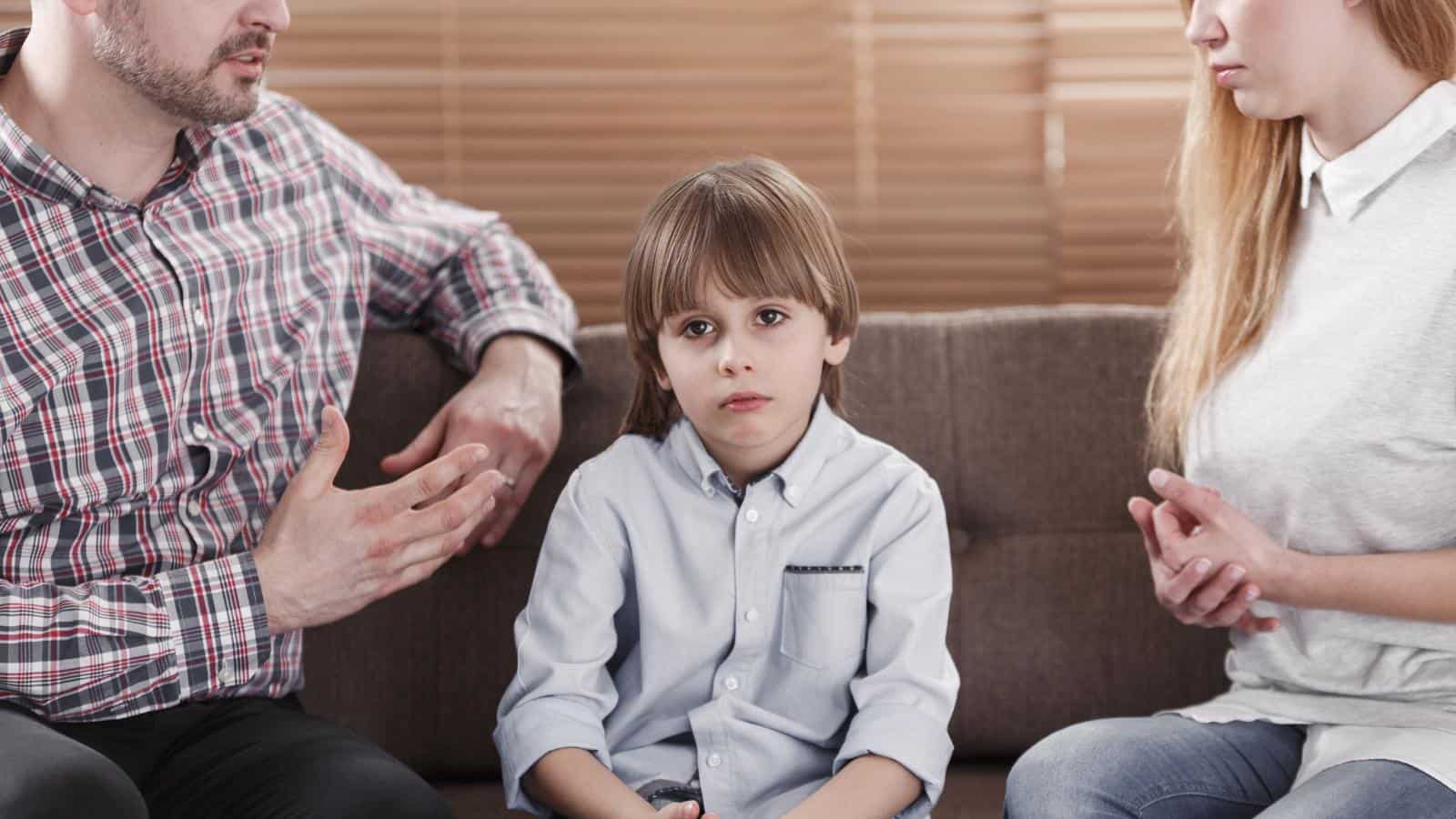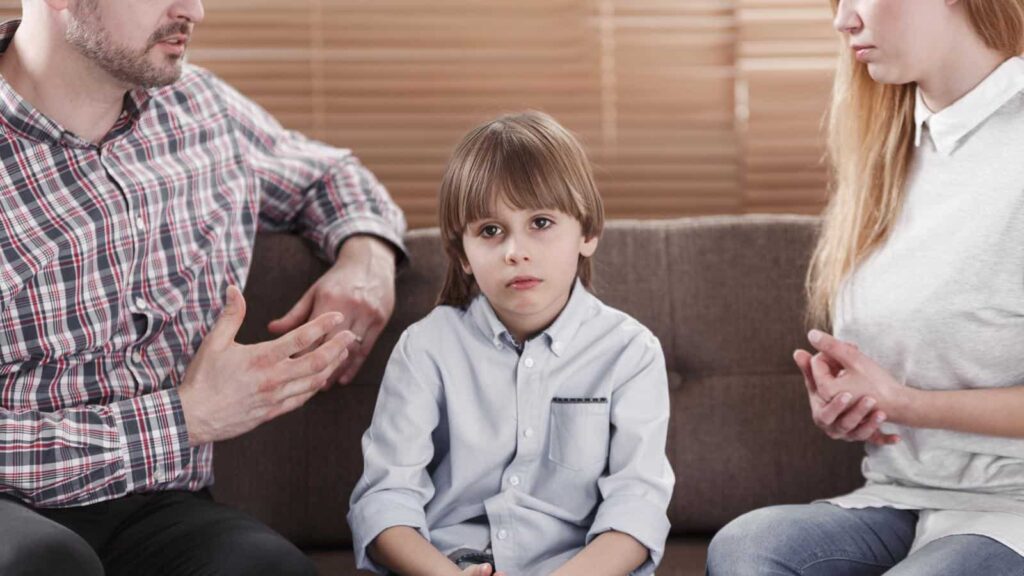In an ideal world, every child would be raised in a loving and supportive home, but the reality is that many people grow up in less-than-perfect environments. If your upbringing was challenging, you might recognize yourself in these 19 signs that indicate you were raised in a dysfunctional family.
Constant Family Conflict

According to Verywell Mind, dysfunctional families usually have frequent arguments and conflicts. The atmosphere may feel heavy and hostile, causing the children to feel like they need to be ready for a fight to start up at any minute. If this sounds familiar, you may have grown up in a dysfunctional family.
Extreme Control or Neglect

Dysfunctional families have a tendency to exhibit controlling or neglectful behaviors. For example, they may give their child too much or too little responsibility and autonomy over their own lives. According to Choosing Therapy, they may also be neglectful of their child’s needs and emotions, leaving them to their own devices for long periods of time.
Emotional or Physical Abuse

As noted by Mental Health America, it goes without saying that any family that physically or emotionally abuses their kids is a dysfunctional family. These behaviors can be extremely damaging to children, causing them to feel powerless, isolated, or in a constant state of fear.
Lack of Emotional Support

Dysfunctional parents commonly fail to give their kids the emotional support they need and deserve. They may appear cold, dismissive, or critical when they should reassure or praise. These kinds of families may also discourage negative or positive displays of emotion from their children.
Poor Communication

Communication isn’t a strong suit for unhealthy families. Much of the time, these families communicate in ways that are ambiguous, manipulative, or abusive. Sometimes, they will fail to communicate at all or use lies to attempt to control situations and get their own way.
Conditional Love

Parents should love their children unconditionally. But unfortunately, many dysfunctional families do not show their kids the unconditional love they deserve. Instead, their children may learn that they can only earn love if they behave in accordance with their caregivers’ needs and wants.
Substance Abuse

A family that is addicted to substances such as alcohol or drugs is usually a dysfunctional family. Substance addiction can drastically alter one’s behavior and prevent parents from giving their kids the attention and care they deserve. It can also create financial issues that have a negative impact on the children’s quality of life.
Inconsistent Discipline

Discipline plays an essential role in raising a child. However, it can also be a tool used for evil. If it felt like rules and consequences were always changing depending on your family’s moods or you received punishments that were much harsher than necessary, it’s likely you grew up in a dysfunctional family.
Perfectionism and Criticism

Toxic families commonly overly criticize their children, which causes them to feel like nothing they do will ever be good enough. As an extension of this, many people raised in this way develop the core belief that they are not good enough, causing them to compensate with perfectionist tendencies or an obsession with achievement.
Strong Sibling Rivalry

A little bit of sibling rivalry is normal and can be healthy. However, if your parents were constantly pitting you and your siblings against each other or had clear favorites, this creates an unhealthy environment in which kids often believe they must do better than others to be deserving of love and attention.
Financial Instability or Secrecy

Many families struggle with money, and that does not necessarily mean they are dysfunctional. However, if your parents were bad at managing their money, had frequent financial crises, or were overly secretive about their financial situation, this is a likely sign you grew up in a dysfunctional family.
Unpredictable Home Environment

Mentally unhealthy parents, whether intentionally or not, often create an unpredictable home environment that can be very damaging to their kids. For example, the atmosphere may be completely silent one minute and erupt into a hostile, explosive argument the next.
Fear of Emotional Intimacy

Many children raised by dysfunctional families develop a fear of emotional intimacy. This often reflects the fears of their parents, who may be emotionally closed off or explosive as a result. If you find it difficult to open up to others, you may have been raised in a dysfunctional family.
Hyper-Independence

Being independent is usually seen as a positive trait. However, some people become overly independent in their adulthood because they were forced to take on too much responsibility as children. If you felt like you had to grow up far too fast, you were probably born into a dysfunctional family.
Chronic Guilt or Responsibility for Family

Some toxic families will scapegoat their children for their problems. As a result, their kids will grow up with a sense of chronic guilt or over-responsibility for negative things happening around them. They may also have been made to feel like the family’s happiness and well-being were dependent on them.
Difficulty Experiencing Joy

Sadly, it is common for children who grew up in dysfunctional families to end up believing that they are undeserving of joy or positive emotions. Perhaps their parents were overly pessimistic, unstable, or even discouraging of positive feelings.
Constant Self-Criticism

Do you struggle with a constant nagging inner voice that seems to criticize you at every opportunity? If so, it’s possible you grew up in a dysfunctional family. As noted by WebMD, toxic parents commonly overly criticize their children, leading them to internalize this harsh voice as they grow up.
Disproportionate Response to Stress

Kids who grow up in a dysfunctional, high-stress family environment may learn coping mechanisms to deal with the intensity of emotions around them. As a result, they may shut down or become extremely anxious when conflict or stress arises.
People-Pleasing Behavior

Often, dysfunctional families will indirectly teach their kids that they must meet their needs and keep them happy to be deserving of love and attention. Because of this, many kids raised in this way will adopt people-pleasing behaviors that follow them into adulthood.







